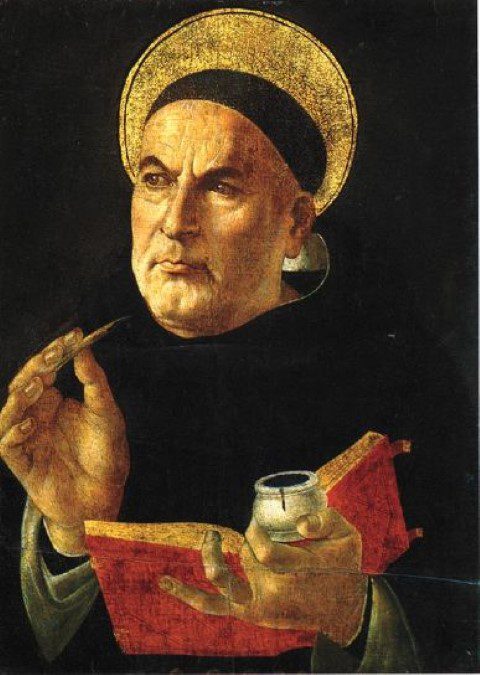Michael Potts
North Carolina, United States

Suppose you are a high school teacher in a basic biology class and you have a question about the function of the heart. You decide to ask an expert, so you dial a university and ask for . . . a theologian.
This is what one teacher did, although he sent a letter. His name was “Phillip” and he was confused about the motion of the heart. He consulted an expert, Thomas Aquinas—the same St. Thomas Aquinas who lived from 1225-1274 and influenced Roman Catholic thought more than any other theologian. Yet it seems odd that someone would ask Aquinas’ advice about the physiology of the heart.
To understand, we must imagine a world that in many ways is foreign to us. In Western Europe, the Roman Catholic Church dominated society. What we call “natural science” today was then a part of philosophy. In this period when Scholastic Theology dominated, theologians such as Aquinas used philosophy to build an overall view of the world, including the natural world. The works of Aristotle had been rediscovered only a few years before, and scholars were in awe of his scientific knowledge. Aquinas knew Aristotle well, so it was not unusual for Phillip to contact Aquinas to ask his advice on the nature of the heart’s motion. Aquinas answers Phillip’s questions in the treatise, De Motu Cordis, “Concerning the Motion of the Heart.”1 Those are also the first three Latin words of the title William Harvey used for his great work on the heart and circulation of the blood (though this does not imply he borrowed the title from Aquinas).
Aquinas’ treatise follows Aristotle closely. In some ways it presents an accurate picture of the role and motion of the heart. Aquinas, in contrast to Galen, whose views make digestion to be the most important aspect of maintaining life, is “cardiocentric.” It is this cardiocentrism borrowed from Aristotle that William Harvey also accepted four hundred years later.
Although Aquinas believed a soul is necessary for the heart to beat, he did not believe that the soul directly causes the heartbeat. He recognized that the heart’s motion is involuntary. Long before the discovery of the heart’s conduction system, Aquinas held that the heart’s motion is caused by something intrinsic to the heart. He believed that the heart’s motion is a kind of “pushing and pulling,” and, even though he accepted the false position that diastole is the heart’s active motion, his basic point is not far off the mark. The heart’s motion is more like a washcloth being wrung, but the heart does push blood throughout the body. As the heart fills during diastole, the sarcomeres (segments of heart muscle) must be stretched or the heart will no longer be able to beat (as in death from severe blood loss). That stretching could be understood as a kind of “pulling.”
Aquinas also recognized that the heart responds to emotion, and correctly says that the emotion comes first and that the heart responds to it. Unfortunately, he followed Aristotle in believing that the heart is the principle of an animal’s movement rather than the brain (although, unlike Aristotle, he recognized that the brain has something to do with these things).2
Aquinas believed that the heart’s motion is similar to that of a circle. However, he was not aware of the circulation of the blood—it took another admirer of Aristotle, William Harvey, to experiment and discover the circulation of the blood. If Aquinas had been an experimentalist or willing to go further beyond Aristotle’s views than he did, he might have proposed the theory that blood circulates. Focusing on experimentation had to wait until the scientific revolution of the seventeenth century.
Aquinas’ view of the heart’s motion was limited by the knowledge of his time. He held that the heart is the cause of warmth in the body—Aquinas was unaware of the hypothalamic-pituitary system’s role in maintaining body temperature. His view that the blood boils around the heart is false. His views that the heart’s active motion is diastole and that blood does not circulate were products of his age and were conclusions that he did not question.
However, we should admire Aquinas for trying, as a theologian and philosopher, to do his best, given limited knowledge, to answer Phillip. He helped keep the Aristotelian tradition on the heart alive, a tradition that would influence William Harvey and point him to the centrality of the heart and to the discovery of the circulation of the blood.
Notes
- St. Thomas Aquinas, De Motu Cordis. Retrieved from http://www4.desales.edu/~philtheo/loughlin/ATP/De_Motu_Cordis/DeMotu_Cordis.html. Accessed November 15, 2013.
- Robert Pasnau, Thomas Aquinas on Human Nature (Cambridge: Cambridge University).
MICHAEL POTTS, PhD, is Professor of Philosophy at Methodist University in Fayetteville, North Carolina. Besides numerous academic publications, he is the author of the novel End of Summer (WordCrafts Press, 2011) and a poetry chapbook, From Field to Thicket, which won the 2006 Mary Belle Campbell Poetry Book Award of the North Carolina Writers’ Network. His creative nonfiction essay, “Haunted,” won the 2006 Rose Post Creative Nonfiction Award, also from the North Carolina Writers’ Network. His poems have been published in several literary and other journals, including a poem in the Journal of the American Medical Association.
Highlighted in Frontispiece Volume 8, Issue 4 – Spring 2017

Leave a Reply